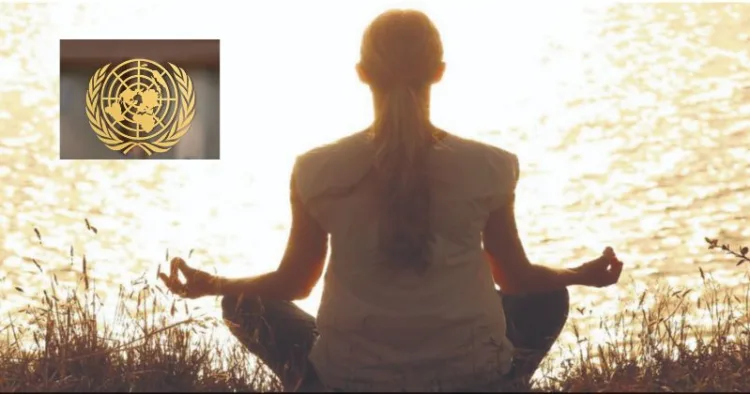New York: The United Nations General Assembly (UNGA) has officially declared December 21 as World Meditation Day through a resolution introduced by Liechtenstein and co-sponsored by India, along with Sri Lanka, Nepal, Mexico, Andorra, and several other nations. This landmark decision highlights the importance of meditation as a tool for achieving inner peace and fostering holistic well-being in an increasingly complex world.
India’s Permanent Representative to the UN, Ambassador Parvathaneni Harish, expressed pride in India’s pivotal role in advancing the resolution. “This is a step toward comprehensive human wellness,” Harish stated, emphasizing that the initiative aligns with India’s philosophical ethos of Vasudhaiva Kutumbakam (the world is one family) and its commitment to promoting global harmony and collective well-being.
The choice of December 21 holds particular significance. The date coincides with the Winter Solstice, an auspicious time in Indian traditions marking the start of Uttarayana—a phase associated with inner reflection and spiritual transformation. This positioning complements the International Day of Yoga, celebrated on June 21, creating a six-month interval between two globally recognized observances focused on mental, physical, and spiritual rejuvenation.
Drawing parallels with India’s leadership in establishing the International Day of Yoga in 2014, Harish noted that yoga has grown into a global movement embraced by millions over the past decade. Similarly, the declaration of World Meditation Day underscores India’s ongoing efforts to promote ancient practices for modern wellness.
The resolution comes at a time when the world is grappling with rising stress, anxiety, and conflicts. The Indian mission at the UN highlighted the contemporary relevance of meditation, rooted in ancient traditions, as a means to address these challenges. Meditation, they emphasized, fosters harmony between mind and body, individuals and communities, and humanity and nature, offering a holistic pathway to peace.
Scientific research supports the efficacy of meditation, with studies revealing its potential to reduce stress, enhance cognitive functions, and improve physical health. By acknowledging these scientifically validated benefits, the UN resolution encourages individuals worldwide to incorporate meditation into their lives, paving the way for a collective journey toward emotional resilience and inner balance.
The initiative has garnered widespread support from nations including Bangladesh, Bulgaria, Mauritius, Monaco, and Iceland, reflecting its universal appeal. The unanimous adoption of the resolution underscores a shared global commitment to prioritizing mental health and well-being in a fast-paced and turbulent world.



















Comments